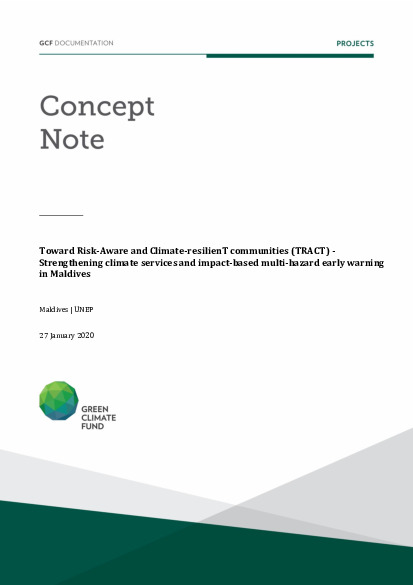Toward Risk-Aware and Climate-resilienT communities (TRACT) - Strengthening climate services and impact-based multi-hazard early warning in Maldives

Toward Risk-Aware and Climate-resilienT communities (TRACT) - Strengthening climate services and impact-based multi-hazard early warning in Maldives
The small size, low elevation and heavy dependence on natural resources for its social and economic security make the Maldives highly vulnerable to climate change impacts and climate-related hazards.5 The country’s vulnerability is further exacerbated by high population density and high rates of coastal development that are rapidly modifying protective natural barriers, such as coastal vegetation and coral reefs. Floods, droughts, cyclones, thunderstorms, storm surges, strong winds and tornadoes have all been identified as climate-related hazards to the Maldives. Extreme climate events are increasing in frequency and/or intensity as a result of climate change.6 Such events have significant impacts on multiple sectors including human settlements, critical infrastructure, tourism, fisheries, human health, water resources, agriculture and food security. Limited financial resources, capacity, technology and adequate institutional structures constitute major challenges to providing end-to-end climate services. Improvement of climate data collection, management and forecasting remains a critical gap area.7
This project will increase the resilience, risk awareness and enhance the livelihoods of the population of Maldives through a paradigm shift to evidence-based preparedness, response actions and decision making for climate risks. This will be achieved through strengthened climate services and impact-based multi-hazard early warning systems (MHEWS), which are crucial to building the climate resilience of Maldives and its vulnerable communities at “the last mile”.